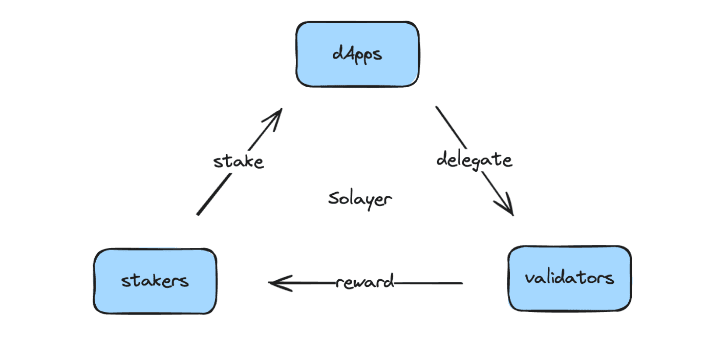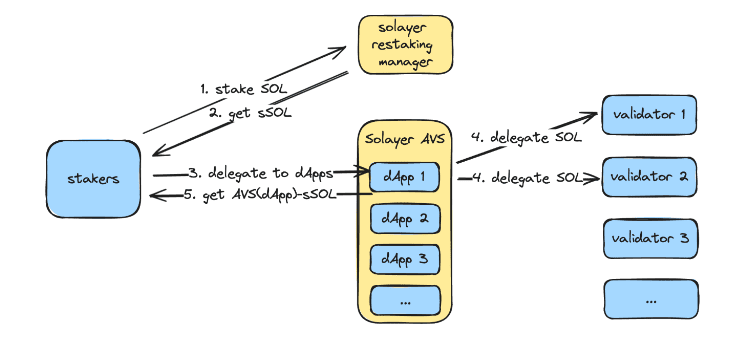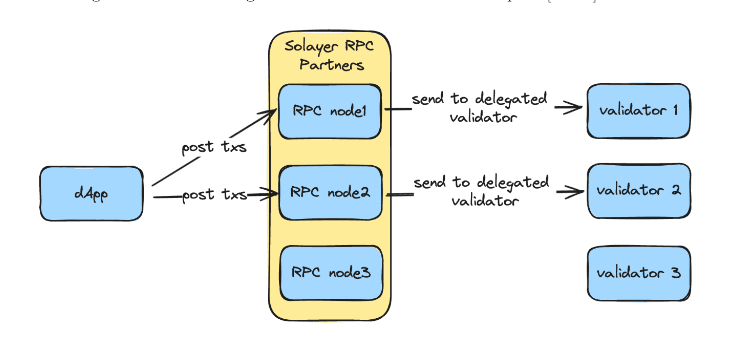In the exploration of blockchain technology ecosystems, the Solayer project launched by @Solayer brings significant improvements to the Solana network with its innovative staking mechanism and decentralized service optimization. The project builds an endogenous Actively Validated Services (AVS) ecosystem through restaking technology, enhancing the efficiency of network resource allocation and providing efficient support for Web3 applications.

Solayer's core innovation lies in its restaking platform, allowing users to delegate staked SOL to dApps to generate sSOL tokens and activate endogenous AVS. This mechanism dynamically adjusts network resources based on staking weight, ensuring that high-staking users receive a better service experience, such as higher transaction processing capabilities (TPUs) and RPC node support. Stakers stake SOL as sSOL through Solayer, which dApps then delegate to validators in exchange for AVS tokens (AVS dApp-sSOL), thereby enhancing transaction priority and resource allocation.

This 'Stake-weighted Quality of Service (QoS)' model effectively optimizes the efficiency of the Solana network, particularly suitable for high-concurrency scenarios. In terms of technical architecture, Solayer provides an end-to-end staking market covering staking, delegation, transaction prioritization, and unlocking processes. Stakers can delegate sSOL to multiple dApps through Solayer, and validators prioritize processing transactions based on staking weight, distributing rewards back to stakers.

Solayer also introduces the 'Super Liquidity' design, reducing slippage and conversion delays of traditional multi-pool models through a unified sSOL-SOL liquidity pool, significantly enhancing asset liquidity and user experience. During the unlocking stage, users can redeem sSOL and extract rewards, with Solayer sharing part of the Solana staking income with dApps, optimizing the ecological incentive mechanism. Security and transparency are key focuses of Solayer.
The project emphasizes Solayer AVS tokens as proof of staking, supporting users in tracking asset flows and extracting rewards. In addition, Solayer plans to adjust service quality based on network load through a dynamic pricing mechanism, further balancing supply and demand. The $LAYER token serves as a governance and incentive tool, distributed to the community and validators, enhancing decentralization.
Although Solayer demonstrates strong potential, its reliance on the stability of the Solana main chain may become a bottleneck, and the value fluctuations of AVS tokens also need market validation. In the future, if cross-chain interoperability and incentive models can be optimized, Solayer will further consolidate its position in the Solana ecosystem. Overall, Solayer provides an efficient decentralized service framework for Solana through restaking and QoS optimization. Its application prospects in DeFi and the dApp ecosystem make the value of the $LAYER token worth continuous attention.#BuiltonSolayer $LAYER



